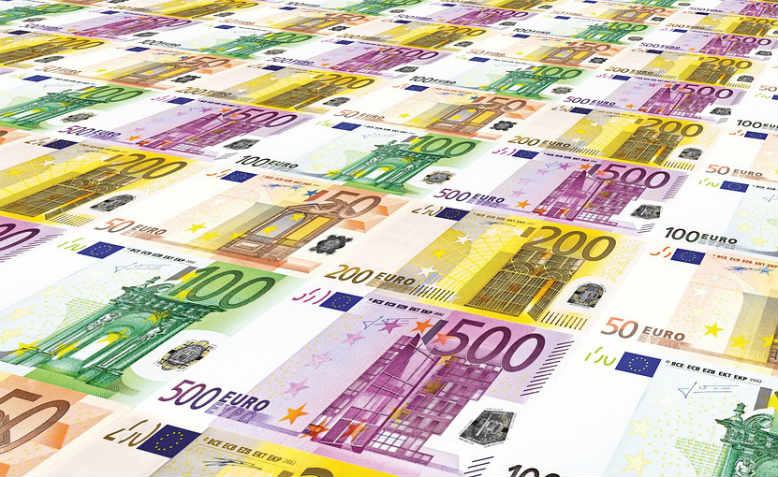 A stack of Euros. Photo: Pixabay/Geralt
A stack of Euros. Photo: Pixabay/Geralt
The soft left’s kowtowing to phony internationalism has to stop now, argues Reuben Bard-Rosenberg
It is comforting to imagine that the fight between the mainstream parties and the radical right is a struggle between reason and unreason.
It is more frightening to recognise that Marine Le Pen’s offer of national welfarism, European withdrawal and protectionism is in some ways more coherent, and less mythic, than the promise that François Hollande made four years ago to restore the prosperity of French workers within the confines of the European Monetary System, and upon the battlefield of unfettered global competition.
To those who’ve been paying attention to France over the past decade, the rise or the National Front should not come as a shock. For the past seven years the unemployment rate has stood at 10 per cent. Four years ago, Sarkozy was kicked out of office and French Socialist Party’s François Hollande was elected amidst a clamour for economic change and a cacophony of radical noises.
In practice he has stuck to basically symbolic adjustments to the top rates of tax, and then, like other Eurozone social democrats, finished his presidency with a package of cost cutting, neoliberal labour market reforms, whilst presiding over even higher levels of unemployment.
Manoeuvre
This trajectory was not simply a consequence of some general law that politicians will betray their professed ideals. Rather it reflected the pressures and limitations imposed by the European economic order.
Like the rest of non-German Europe, France cannot easily compete with Germany’s legacy of post-cold war productivity growth and wage restraint. As a Eurozone member, France cannot restore competitiveness by allowing its currency to depreciate.
Given the European Fiscal Compact, France cannot counteract lack of international competitiveness by propping up domestic demand, whilst Europe’s state aid laws prevent the government from subsidising or nationalising ailing industries.
Meanwhile, Europe’s external trade policy – that of keeping the continent’s harbours open to the produce of the world’s dollar-a-day sweatshops – places even greater pressure on jobs and wages, and further limits any room for social democratic manoeuvre.
And so, in one sense, it is not shocking that Le Pen should be winning over former French Socialist Party voters on a ticket of leaving the single currency, protecting domestic industries, lowering the retirement age and raising wages.
Moreover, given that Hollande has seamlessly perpetuated his predecessor’s policy of state-sponsored racism, it is unsurprising that greater legitimacy is now enjoyed by the candidate who truly specialises in racism and Islamaphobia.
Super-exploitation
The French situation is hardly exceptional. The task for radicals across the west is firstly to double down on our opposition to state and popular racism. Secondly, our task is to genuinely challenge the far right’s apparent monopoly in offering a social alternative to globalisation.
To be clear, I am not arguing that the far right have been so successful that we need to steal their clothes. Rather I am calling upon us to wear those clothes that should already be our own. If we are serious about making our societies more equal, and advancing the interests of working we people, we need to start by asking whether this can be done within the boundaries set by a hyper competitive global market place and the European system.
Some of you will remember that 15 years ago there was a major left wing antj-globalisation movement. The limitation of that movement is that is focused too exclusively upon the super-exploitation of the developing world and protecting the environment (both important causes).
Maximise
What we must address now is the way in which globalisation structures inequality within the domestic economy: the way in which it delivers disproportionate benefits for those sectors that are globally competitive (in our case finance) whilst other sectors pay the price in the form of import penetration (see South Wales, Michigan)
Meanwhile the global investor class maximise their returns by producing where labour is cheapest and selling where goods are dearest. At the very least, our programme must involve a shift away from free trade, an orderly dissolution of the single currency and a relaxation of Europe’s anti interventionist state aid rules.
Right now, the radical right are attempting to set fire to a bonfire that has been built up by generations of euro-integrationists, outsourcing CEOs, and social democrats who were too stupid to care about the content of the neoliberal Maastricht treaty or offer any serious alternative to deindustrialisation.
At this moment, the position of the left cannot be to keep on heaping up the logs.

